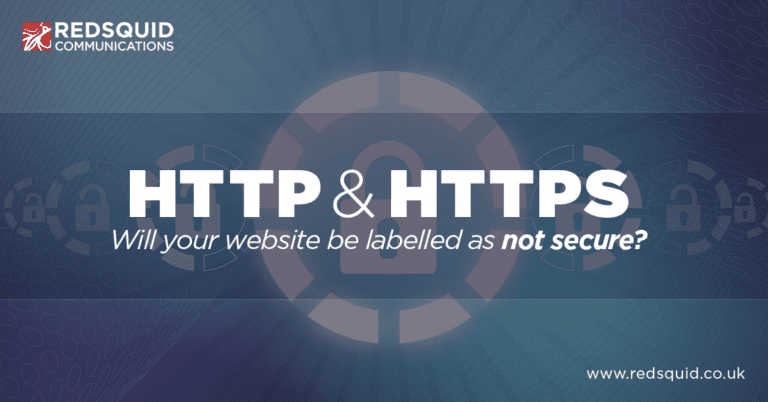HTTP and HTTPS: Will Your Website be Labelled as Not Secure?
As of July this year, certain websites listed on Google search engines will be labelled as being ‘not secure’.
Google is planning an update to release this summer, designed to identify sites that are not HTTPS as being unsecure in both listed search results and in Google Chrome search bars. This has already been the case for many websites since 2015, with Google releasing an update that labels sites requiring visitors to enter personal details, or hosts monetary transactions, as being not secure if they’re HTTP.

What is the difference between HTTP and HTTPS?
Well, a HTTPS protocol encrypts the connection between a visitor’s IP address (or device/PC) and wherever the site is stored. Which means that whenever someone visits and interacts with a HTTPS website, it’s much harder for an outside (often malicious) party to spy on, or interfere with, their activity. Google are pushing this update in an effort to improve internet safety, by making searchers aware of the risks involved with visiting unprotected sites. Their aim is to eventually encourage all site owners to migrate over to HTTPS protocol, and this update could certainly go a long way towards that particular goal.
If your website is not HTTPS, then potential or existing visitors could be discouraged from interacting with it once this update goes through. With the very obvious label of ‘not secure’ placed next to your web-address and search result, you could be missing out on online interest because your potential customers don’t want to take the risk. Additionally, Google also rank down sites that aren’t HTTPS in search results, thereby further lowering your chances of getting visited by online customers.
However, there’s no need to panic. As turning your unsecure HTTP site into a certified HTTPS site, is a speedy and inexpensive process. Simply contact a SSL Certificate Authority, which could be your website host (many hosts offer SSL certificates as a service) or a third-party source, and request a SSL certificate for your site. Ensuring that you buy from a trusted Certificate Authority is important, as some search engines will only recognise SSL certificates from certain vendors. The organisation you purchase from will then have to install the SSL certificate onto the server your website is stored, so it will take a little time.
Nevertheless, if you act soon enough, your website should be secure well before the scheduled update in July. You can also learn more about HTTP & HTTPS, from plenty of other online sources, such as this one.
Want to share it with your friends?

